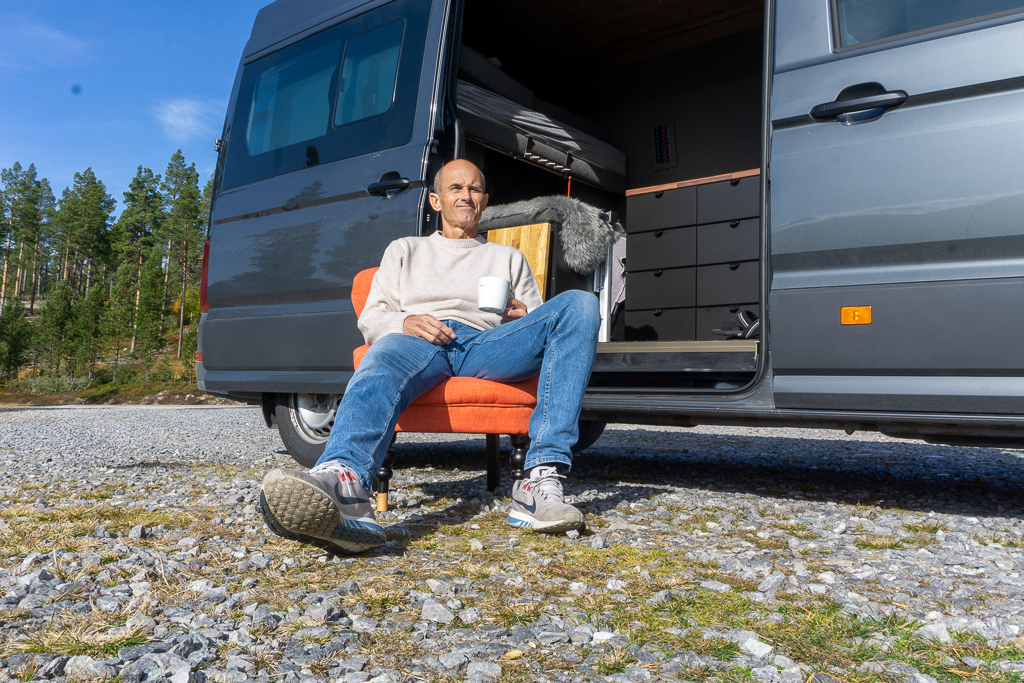(Or how to not by things all the time)
The combination of two things I read lately makes me write this article today. Yesterday I learned about minimalism. As a result, in a familiar internet style, (googling) I ended up watching the documentary
The minimalist: Less is now.
A documentary that tell the story about the lives of those who are considered one of the creators of the minimalist lifestyle: Ryan Nicodemus and Fields Millburn.
Lets dive into it.
Table of content
- Overstimulated world
- Get rid of abundance
- A desert full of clothes
- In the gloom and darkness of the night
- Pollutes more than planes and shipping combined
- Nobody bothers to live like a monk, right?
- Consumes way too much
- $ 300 billion on marketing.
- You will be happier – it is scientifically proven
- Minimalism: Eliminating unnecessary things
Overstimulated world
According to minimalists, today we live in an overly stimulating world. In addition, many of these stimuli come from ads that will make us buy more and more things. This means that they make us believe that we need more things to feel good about ourselves.
According to minimalism, we get heavier with each new purchase we make. That is, our emotional plan becomes overloaded, and we begin to lose our freedom as human beings.
Get rid of abundance
Therefore, the creators of the minimalist lifestyle, Ryan Nicodemus and Fields Millburn, define this way of life as a tool that serves as a catalyst to get rid of abundance.
Why should we do this? We should do it so that we can focus on what is important and the things that really lead to happiness, freedom and satisfaction.
If you are interested in minimalism, there are a number of characteristics that define this lifestyle. They are based on a simple idea: to eliminate material and artificial needs, put them in the background of our lives, and put the spotlight on ourselves.
A desert full of clothes
The other article that made me write this was a report in NRK (Norwegian Broadcasting) about Chile’s problem with tons of useless clothes. It turns out that in the Atacama Desert in northern Chile – the driest area on the planet – lies whole mountains of discarded clothes.
In the last year alone, almost 40,000 tons of used fashion clothing ended up here.
The used clothes arrive in Chile via the port in the city of Iquique in the far north of the country. Iquique is a tax-free zone, and one of the few places that allows the import of used fashion clothing from the rich world.
The clothes come from Asia, Europe and the USA, and the Chilean desert is the final destination.
Environmental expert Franklin Zepeda is shocked at how the clothing industry operates.
– When the used clothes arrive in Chile, they are sorted in first, second and third class quality. The lowest quality is rubbish that no one wants to buy, he says.
In the gloom and darkness of the night
Franklin Zepeda knows the local clothing industry in detail and knows how it operates. He says that the discarded clothes are driven out in large trucks at night and dumped in the desert:
– Clothing importers are not allowed to throw these clothes in public landfills. Instead, they litter the beautiful nature that we have here in the desert, he says.
For the environment, the piles of clothes in Atacama are a disaster.
– The clothes contain up to 70 percent oil-based materials, which can take 200 years to break down, says the environmental expert. Meanwhile, these materials penetrate into the ground and contaminate groundwater. In addition, microplastics drive the wind out to sea, which is not far away:
– The fish eats it, and when we eat the fish we get this microplastic. The pollution worries us greatly, says Franklin Zepeda.
Pollutes more than planes and shipping combined
According to the World Bank, the clothing industry is one of the world’s worst environmental and climate sinners. It accounts for around 10 percent of all CO emissions. More than planes and shipping combined.
More traditional wisdom reminds us that dependence on material things makes us slaves. When we collect things, we waste time cleaning and keeping these objects in order. There is a lot of wasted time that we could have spent on useful measures. For that reason, minimalists are happy to have empty drawers and cabinets. They eliminate things they do not need.
Nobody bothers to live like a monk, right?
And before you scroll on, let me tell you what I mean by minimalism. No, it’s not about living in an almost empty room, with only a knife, fork and spoon in the kitchen drawer, minimal clothing and otherwise a boring and rigid everyday life. Nor is it about living as a nomad or having a lifestyle as a monk.
I have always been interested in the easier way of life. Chronic PTSD means that weekdays must have a structure and direction for life to function. Structure and direction become difficult when there is confusion and disorder around one. Routines are therefore, as I have previously written a lot about on this blog, important. Clarity is also a point. That this can be combined with a healthy relationship to use and the throwing community is a good thing.
Consumes way too much
The conclusion is: We consume far too much. We buy and thus also discard in quantities. Just look at how often we go out with the trash. Once a day? Every other day?
The point is, we do not use most of what we buy. Or that we use it once or twice in an emergency. Then it collects dust in some hook (or a cupboard) until one day we, during the spring cleaning, throw it away. Or as many Americans have done before us and as we now take after them: renting storage in specially adapted buildings and houses that take into account that we do not even have room at home for all our rubbish
$ 300 billion on marketing.
In the United States, almost $ 300 billion is spent telling us to buy things. We are not quite there in Europe and in Norway, but I am not surprised that we will soon catch up with the Americans. Marketing is slowly shifting from paper and television to the internet.
This is because the internet has a unique ability to tailor the messages. Algorithms retrieve your unspoken needs from places you surf, and consider the seconds you stop at a picture, (no, you do not have to click on it.)
Just the fact that you stop and look at a picture before scrolling is enough for the algorithm. Twenty seconds later, you will see an ad tailored to your underlying needs related to the image you stopped at. In addition, the advertising messages are adapted so that you do not even have to have expressed a need.
You may have stopped by something online out of curiosity or interest without a desire to buy. Maybe you stopped just because it had a visual value: what the algorithm and the psychologists behind the marketing then do is create a need by telling you that you are a “loser” if you do not buy this product.
Of course not so straight forward, but still: you are told that by buying this product you will have a better (and probably happier) life. Maybe you even get the beautiful girl and the fanzy car and the 2.4 kids you might wish you had.
What do I know?
You will be happier - it is scientifically proven
I understand that business needs to make money. This is how the world goes around. But what gets complicated and difficult is when we overconsume. We buy things we do not need at all. Scale down. You do not have to be a monk to do this.
You are no loser if you do not have the latest new of everything or what your neighbor bought that you do not have. The car you have probably lasts for many years yet, it is not necessary to buy a Tesla, just because it looks sleek. Or the latest iPhone because – why?
Because everyone has it?
Or clothes that have been reduced by 30% (from what price?) And of which there are apparently few left. (I know some who are triggered by such offers. They think there are few products left and the products have been reduced by x number of percent)
There is no reason to buy them anyway. When has there ever been a shortage of products? Or for that matter – when has anyone ever been missing a product because there are “few” left of it?
Never.
If you missed those pants, do not despair. Should you have a great need for a pair of trousers next week, I promise that it will be available then as well.
Watch the film, think about your own consumption. Start today by looking closely at your surroundings. And by all means, tidy up cupboards and drawers. It never hurts. On the contrary, according to this study.
Minimalism: Eliminating unnecessary things
Minimalism means eliminating everything in our lives that is not absolutely necessary. If you have stored useless ornaments and memorabilia, you should get rid of things you do not need. Empty that space so you can fill it with things that will actually improve your quality of life.
It’s that simple.

What is a lifetime, really?
Twenty good years? A good friend of mine once said while walking in the mountains of Gran Canaria.“Knut, we have twenty good years left. Use

How to protect yourself from your PTSD, when the world is on fire
(It is war. And it is mine. ) The headlines that meet me today are about the war in Ukraine. Alarms going off, people fleeing,

The thin film of civilization
The thin film of civilization This picture are taken on Lesvos. Her husband and baby drowned on the way over from Turkey. This is a
